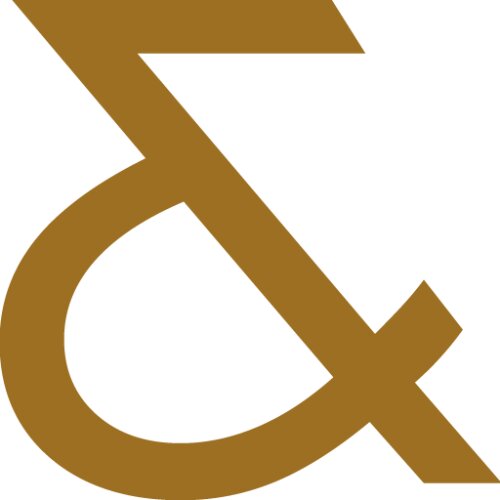Best Life Insurance Lawyers in France
Share your needs with us, get contacted by law firms.
Free. Takes 2 min.
Or refine your search by selecting a city:
List of the best lawyers in France
About Life Insurance Law in France
Life insurance in France, known as "assurance vie," is not just a product for providing a death benefit; it is also a versatile investment vehicle. It allows policyholders to save money over the long term with a choice of different investment funds. Life insurance policies are subject to specific rules, regulations, and tax benefits, making it one of the most popular financial products in France. These policies are governed by the French Insurance Code and are considered an integral part of estate planning and savings strategies for individuals.
Why You May Need a Lawyer
While life insurance in France is a well-regulated industry, various situations can arise where legal counsel might be necessary. Common scenarios include:
- Disputes regarding the interpretation of policy terms and conditions
- Problems with policy payouts, such as delays or denials
- Complexities involving beneficiaries and inheritance tax implications
- Legal issues around mis-selling or modification of life insurance contracts
- Dealing with cross-border life insurance policies
In such scenarios, a lawyer can provide clarity, negotiate on your behalf, and help ensure your rights are protected under French law.
Local Laws Overview
Life insurance policies in France are subject to specific regulatory requirements that include:
- The French Insurance Code ("Code des assurances"), which regulates the contractual and operational aspects of life insurance.
- Taxation benefits, where life insurance contracts enjoy favorable tax treatment on profits and certain tax advantages upon death.
- Laws concerning who can be beneficiaries and how the proceeds can be distributed according to French inheritance rules.
- The obligation of insurers to provide clear and precise information before signing the contract.
Understanding these laws can help policyholders navigate the complexity of their life insurance policy and make informed decisions.
Frequently Asked Questions
What is the advantage of taking out a life insurance policy in France?
Life insurance in France is advantageous as it combines saving and inheritance management with favorable tax treatment. It also offers a flexible way to pass on wealth to beneficiaries.
Are life insurance payouts tax-free in France?
While payouts can be substantially tax-efficient, they are subject to certain tax exemptions and allowances. Beneficiaries might face inheritance tax, but significant exemptions often apply.
Who can be a beneficiary of a life insurance policy?
You can designate anyone as a beneficiary in France, including family members, friends, or even charities.
Can I change the beneficiary of my life insurance policy?
Yes, policyholders typically have the flexibility to change beneficiaries, unless the policy explicitly states otherwise.
What happens to my life insurance policy if I leave France?
The policy remains valid, but tax implications may vary depending on your new country of residence and applicable double taxation agreements.
Is life insurance considered part of the estate in France?
No, life insurance is a distinct entity and is not included in the policyholder's estate for inheritance purposes, which provides strategic tax advantages.
What is a "rente viagère" in the context of life insurance?
A "rente viagère" is an annuity option where regular payments are made to the insured for life, usually starting from a predetermined retirement age.
Can minors be beneficiaries of life insurance policies?
Yes, minors can be beneficiaries, and the payout can be managed under legal guardianship until they reach adulthood.
What are "fonds en euros" in a life insurance policy?
"Fonds en euros" are secure investment options within a life insurance policy with guaranteed capital and annual interest accruals.
Can I access the funds in my life insurance policy before I die?
Yes, policyholders can redeem their life insurance policy partially or fully before death, though there may be tax considerations.
Additional Resources
Several resources can provide valuable insights and guidance for life insurance issues in France:
- Autorité de Contrôle Prudentiel et de Résolution (ACPR): The body overseeing insurance activities.
- Union Nationale des Associations Familiales (UNAF): Offers guidance on policies as they pertain to families.
- Financial advisors specializing in French insurance products who can provide personalized guidance.
- Legal professionals specializing in life insurance and estate planning laws in France.
Next Steps
If you find yourself needing legal assistance with life insurance in France, consider the following steps:
- Identify the specific legal issues or questions you have.
- Gather all relevant documents related to your life insurance policy.
- Consult with a specialized lawyer or legal advisor who understands the nuances of life insurance in France.
- Explore local legal services or contact your local bar association for referrals to qualified professionals.
By taking these steps, you can ensure that you receive the appropriate legal advice and action needed to address your life insurance concerns effectively.
Lawzana helps you find the best lawyers and law firms in France through a curated and pre-screened list of qualified legal professionals. Our platform offers rankings and detailed profiles of attorneys and law firms, allowing you to compare based on practice areas, including Life Insurance, experience, and client feedback.
Each profile includes a description of the firm's areas of practice, client reviews, team members and partners, year of establishment, spoken languages, office locations, contact information, social media presence, and any published articles or resources. Most firms on our platform speak English and are experienced in both local and international legal matters.
Get a quote from top-rated law firms in France — quickly, securely, and without unnecessary hassle.
Disclaimer:
The information provided on this page is for general informational purposes only and does not constitute legal advice. While we strive to ensure the accuracy and relevance of the content, legal information may change over time, and interpretations of the law can vary. You should always consult with a qualified legal professional for advice specific to your situation.
We disclaim all liability for actions taken or not taken based on the content of this page. If you believe any information is incorrect or outdated, please contact us, and we will review and update it where appropriate.
Browse life insurance law firms by city in France
Refine your search by selecting a city.















